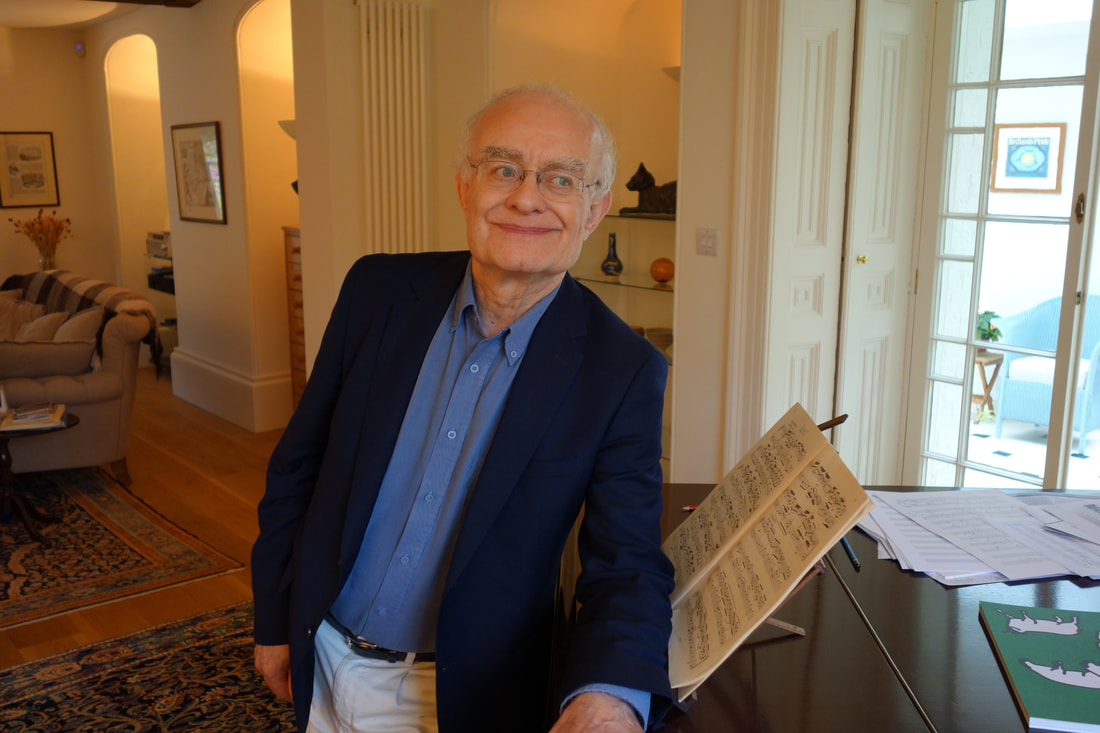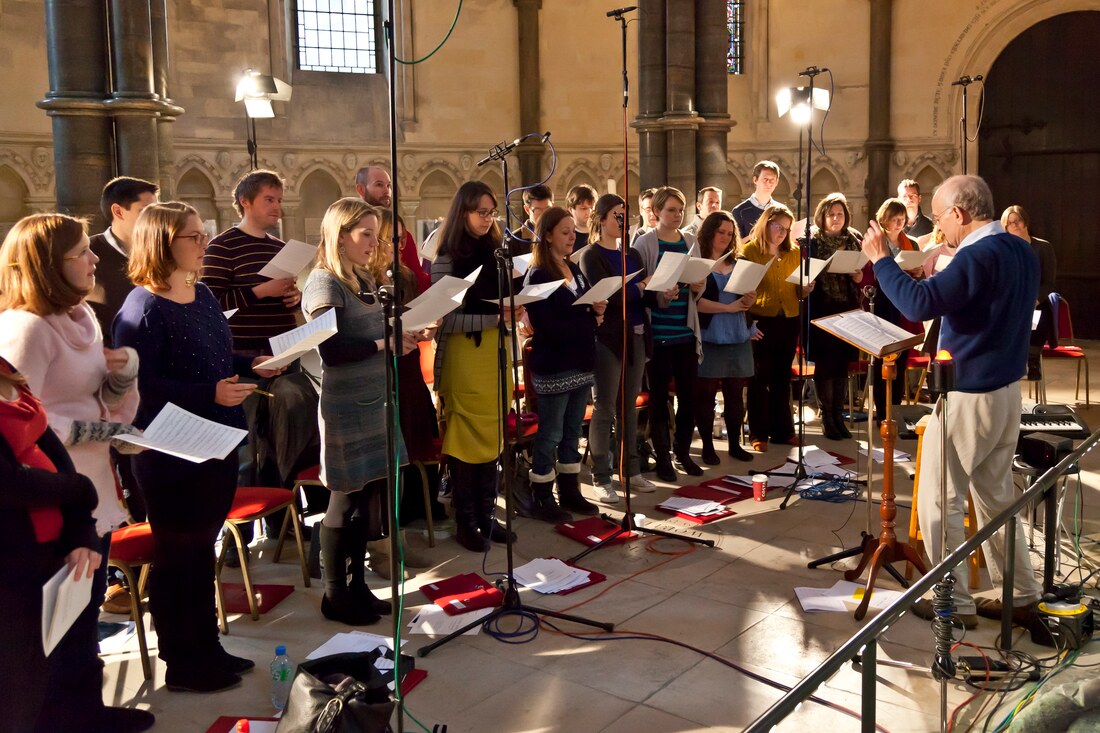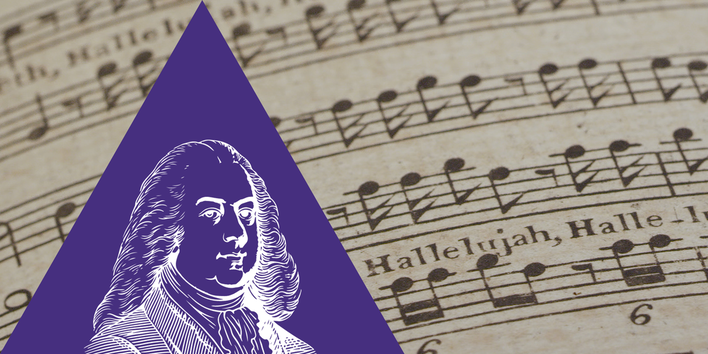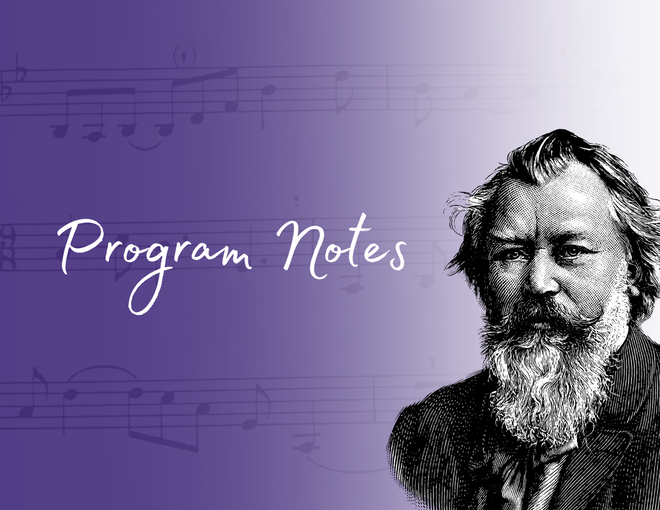|
On April 27, 2024, Asheville Symphony Chorus and Asheville Youth Choirs will perform a joint concert spanning centuries and musical styles — the first joint performance in either organization's history. Among luminaries like Beethoven, and Mendelssohn, you'll find a name you may not be familiar with: John Rutter. In fact, there are two Rutter pieces in the concert's program: a bouncy, syncopated arrangement of All Things Bright and Beautiful and the haunting Ukrainian Prayer.
Rutter is an acclaimed English composer, conductor, and arranger known primarily for his sacred choral works, including Christmas carols, anthems, and long-form pieces such as his Gloria, Requiem, and Mass of the Children. Born in London at the end of World War II, Rutter took to music as a young child, and participated in choruses through his undergraduate years at Clare College at the University of Cambridge. It was as an undergraduate that he first started publishing his compositions. He'd later direct the music program at Clare College and, under his baton, the college chorus gained international recognition. In 1981, he founded his own choir, the Cambridge Singers, with whom he has recorded many of his own choral works and the works of other masters. Rutter's compositions, which draw from a wide variety of choral and song-writing traditions, have become staples of choral repertoire and have been performed around the world. He's particularly popular in the US and in the UK — his music was featured in the last two royal weddings! The second Rutter piece is one of his most recent compositions. Published in 2022, A Ukrainian Prayer was Rutter's response to the war in Ukraine. "How can a composer respond to a global tragedy?" Rutter asked in a companion video. "The first thing I wanted to do was write some music that would respond in my own way. I hope the meaning of the text will resonate in people's hearts and reach out to the people of Ukraine in their hour of need." The text Rutter has set translates literally to: Lord, protect Ukraine. Give us strength, faith, and hope, our Father. Amen. He's made the score available for free to anyone and has provided permission to record it without a license. It appears in the Songs of Peace section of ASC and AYC's April program. Perhaps no piece of Western classical or choral music reminds more people of the holidays than George Frideric Handel’s Messiah. Performed in concert halls, churches, and countless other venues each holiday season, Messiah brings together voice and instrumentation to tell the story of the life of Jesus Christ, from the Nativity to Crucifixion and Resurrection, ultimately ending with the promise of redemption and victory over sin.
“Doing the Messiah in December is extra special. As soon as you hear the first notes of the first section, you think ‘Christmas’," says Asheville Symphony Chorus Conductor Kyle Ritter. “For many people, I think it's the demarcation — the beginning of the holiday.” What’s the Story Behind Messiah? Composed over the course of just 24 days in 1741, the oratorio — a large composition for orchestra and voice that often focuses on religious themes and, unlike an opera, eschews the use of costumes and scenery -- Messiah was written by Handel with some lyrical help from his longtime friend, librettist and Anglican minister Charles Jennens. Written at a time when Italian opera’s popularity was on the wane, Handel made the calculated decision to use English for Messiah in the hopes of appealing to a broader audience. After the piece was first performed for the public to a standing-room only crowd in Dublin in 1742, it was immediately clear that Handel’s gambit had paid off: The performance netted a princely sum of £400 — about £100,000 in today’s sterling. However, the piece and its performance weren’t just a financial success. Concertgoers and critics alike fell in love with it immediately, leading one member of the press to write that: "Words are wanting to express the exquisite delight it afforded to the admiring and crowded audience". What’s a Messiah Sing — and How Can You Get Involved? With a piece as rich in history and as firmly entrenched in the Western holiday tradition as Messiah, it’s easy to see why more than just professional musicians and singers have long looked for opportunities to get involved with a performance of the iconic piece. Enter the “Messiah Sing,” an informal performance in which the audience, unrehearsed, serves as a chorus in support of an often professional orchestra and chorus. The tradition began among the amateur choral societies of early 19th-century England. Because Messiah was specifically composed to need only a few rehearsals, it was ideal for non-professional choruses. In the 1820s, Handel Festivals across England began featuring performances of the oratorio by amateur choruses in what came to be called “Scratch Messiahs” or “the People’s Messiah”. “Messiah Sings are a holiday tradition around the world — and they’re a tradition in Asheville,” says Ritter, who will be conducting the ASC Messiah Sing-along for the first time this year. “ASC hosted Messiah Sing-alongs for years, and they were always very popular. Then we had the pandemic and had to pause for several years. So I’m excited to welcome the community back to what was a very beloved event.” ASC’s Messiah Sing-along will feature members of Asheville Symphony Orchestra and ASC Assistant Conductor Tate Addis on organ. And all community members are welcome, Ritter stresses. “Whether you’re an experienced singer or new to choral singing, we’d love for you to join us in welcoming the Messiah Sing-along back to Asheville.” Where and When Does ASC’s Messiah Sing-along Happen? ASC will host its annual Messiah Sing-along on Tuesday, December 5 at Trinity Episcopal Church at 7:00 p.m. Tickets are $15 for youth and $25 for adults. Use the button below to buy yours now! This November, the Asheville Symphony Chorus opens the 2023-2024 season with a program of folk and love songs from Germany, Slovakia, and Hungary (see our full line-up here). From Germany, ASC Director and Conductor Kyle Ritter has selected passages from Johannes Brahms' Liebeslieder Waltzes Op. 52 . Ahead of the concert, Ritter sat down to talk through the Walzer, why he chose Brahms for the program, and what the audience should listen for in the setting of this Romantic text.
About the Composer Born in Hamburg in 1833, German composer Johannes Brahms is noted for his work on a variety of orchestral compositions, including his Second Symphony Op. 73, the Violin Concerto Op. 77 and the Academic Festival Overture. However, he may be most well known for later works like his Third and Fourth Symphonies, the former of which fellow German composer Richard Strauss called "a giant work, great in concept and invention." Aside from his compositional accomplishments, Brahms was also a key influence on the lives and works of contemporary composers, including fellow German Strauss, the Austro-Bohemian composer Gustav Mahler, and Czech composer Antonín Dvořák. Brahms was so influential on Dvořák that he recommended the younger composer to his publisher, and Dvořák later dedicated his 1878 work String Quartet, Op. 34 to Brahms, likely as an expression of gratitude for all Brahms had done to elevate the Czech composer's fledgling career. During much of his career, Brahms was an adherent to and proponent of the concept of absolute music, or music that's not "about" anything. Consider it "music for music's sake." Why the Liebeslieder Waltzer? When ASC Director Kyle Ritter was planning the first concert of the 2023-2024 season, he sought advice from a good friend. "They're a really fabulous organist and choral director," he says. "They brought up the waltzes. I'd previously performed them and played them, as well. And I thought, what a truly fabulous idea." Unlike many choral works, Brahms' Liebeslieder Waltzes were originally intended to be performed by small ensembles in the salons of Europe's gentry. "They weren't even necessarily meant to be performed as a set," Ritter says. ASC will be performing 10 of the 18 works in the opus. "They're just exquisite works," says Ritter. "Every one's individually a gem and they kind of stand on their own." Like all waltzes, Brahms' Liebeslieder compositions are designed for dance in 3/4 time. They're written in the Ländler style, a type of folk dance that reached the height of its popularity at the end of the 18th century, largely in Austria, Bavaria, German Switzerland, and Slovenia. Despite the fact that the Liebeslieder pieces were written nearly 70 years after the height of the popularity of the Ländler style, they were immediately well received by concertgoers. While early critics lamented the lack of melodic flow within the Liebeslieder Waltzes, perception rapidly changed following a landmark 1870 performance of the pieces in London. "I came to Brahms late, as far as my admiration of his music," says Ritter. "I never was a real Romanticist. I appreciated Baroque music and I really appreciated 20th-century music, and the Romantic stuff to seemed dark to me. It took me a while to sort of 'grow up' and look at the intricacy of Brahms, and how intentional and genius all of it is." Text Wedded to Tune The Liebeslieder Waltzes' Romantic text comes from German poet and philosopher Georg Friedrich Daumer's Polydora, a collection of folk songs and love poems that likely would have resonated with elites and the populace alike, contributing to the pieces' universal popularity at the time — and its continued appeal. "I really hope that [the audience] has the program open to the translation [while ASC performs], because I really do think Brahms masterfully sets those texts," says Ritter. "I want the audience to imagine themselves seated in a salon, immersed in in the experience of hearing the poetry, hearing how Brahms paints the nuances and the feelings of those texts." When and Where Can You See the Liebeslieder Waltzes Performed? The Asheville Symphony Chorus will perform selections from the Liebeslieder Waltzes, among other folk settings, at First Baptist Church of Asheville on November 12, 2023 at 7pm. Tickets are available on ASC's Concerts page. |
AddressPO Box 1387
Asheville, NC 28802 |
President's Phone(828) 231-3960
|
|
(c) 2023 Asheville Symphony Chorus PRIVACY POLICY




